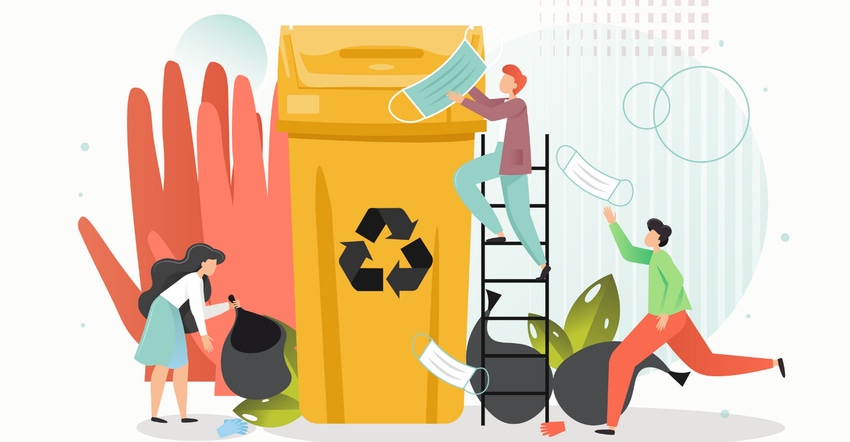A Wake-Up Call for Sustainable Infrastructure

Beware the Ides of March. An apt Shakespearean warning that seems quite applicable to the office closings and community lockdowns in a large swath of North America from COVID-19’s rapid interruption to our way of life that month. Since then, work, school and even vacation from home has become significantly entrenched, resulting in significant and possibly long-lasting implications to life as we knew it – and specifically, to the waste industry.
Our industry has even made national headlines, with waste volumes shifting from the commercial sector to residential. Municipalities nationwide struggled with the additional waste generated at home as a result of the unforeseen changes to the economy and individual lifestyles. I believe this gives us an opportunity to shine light on the true value of local essential infrastructure, services and the jobs our industry provides – and prioritize investment in sustainable waste management in order to bolster and support our local economies for the long term.
Early in the pandemic, there was a rush to stockpile the basic requirements – food, water and toilet paper. Who knew toilet paper would fly off the shelf as there would never be another square available? Our farmers and food supply chain did meet the challenge, and despite what seemed like a critical shortage of toilet paper (seriously, where did it really all go?) things settled out.
That said, the COVID-19 pandemic has given us a small snapshot of what local scarcity looks like and more importantly, it showed us that we have taken essential services for granted as a society. This wake-up call has given us an opportunity to properly value these services and invest in our long-term needs, with a careful eye toward sustainable local practices as a high-reward opportunity in the future.
Sustainable practices – the focus on three Ps of people, planet, and prosperity – in the context of a pandemic and a global climate crisis is – are clearly more important than ever. And COVID-19 has reminded us of the importance of community – we are not in this alone. So as we emerge, I believe we should focus our energy on prioritizing local investment and work outward from a strong base.
Communities need people to be productive, and productivity is an opportunity for prosperity – economic, social and general well-being. As we sadly see parts of the economy being devastated by forces outside of our control, the communities in which we live still have demands for essential services such as sustainable waste management. Thanks to the tireless efforts of waste and recycling workers, our industry has remained resilient and our communities remain clean and safe for us to live in. While our economy has suffered from a pandemic, waste at the curb is not magically going away any time soon, as we can see from many a news headline.
What I have always loved about Covanta’s Waste-to-Energy business is its contribution to local skilled jobs. People are afforded an opportunity to work together in a manner in which we bring value to what is otherwise “wasted”. Our sophisticated industrial plants safely thermally treat household wastes and recover products (energy and recyclable metals that otherwise wouldn’t be captured) to make goods of immediate value and use. This value is not insignificant – but is seldom properly valued in the local, regional or national context.
According to a recent study done by researchers at the University of Buffalo, our Niagara Falls, N.Y., facility alone supports more than $120 million in economic output in the local economy every year. For every job at the facility, another four were supported elsewhere in the state.
That is not insignificant. These facilities are economic engines for people, with excellent wages, salaries and benefits. They also help our communities, generating significant taxes, host fees and revenues through the procurement of local goods and services. For Covanta’s facilities, which process 21 million tons of waste annually, that equates to $3.2 billion of economic value generated in the communities we serve.
In addition to the economic benefits, waste to energy is widely recognized as a technology that helps mitigate climate change. In fact, it is the only form of energy generation that reduces greenhouse gases. This is because it avoids using methane from landfills, offsetting emissions from fossil fuel electrical production and recovering metals for recycling.
The waste we generate must go somewhere and be managed responsibly. For too long, our society has taken this reality for granted and has not cared what happens to our waste after leaving it at the curb. The COVID-19 pandemic is a stark reminder that it’s not always business as usual, and we can no longer afford to take this local infrastructure, these services and the tangible value they provide to communities for granted. There’s too much at stake and too much opportunity to ignore.
Let’s use this wake-up call to make meaningful change and investments in sustainable local infrastructure that will safeguard our future and ensure our communities have the opportunity to prosper.
About the Author(s)
You May Also Like


